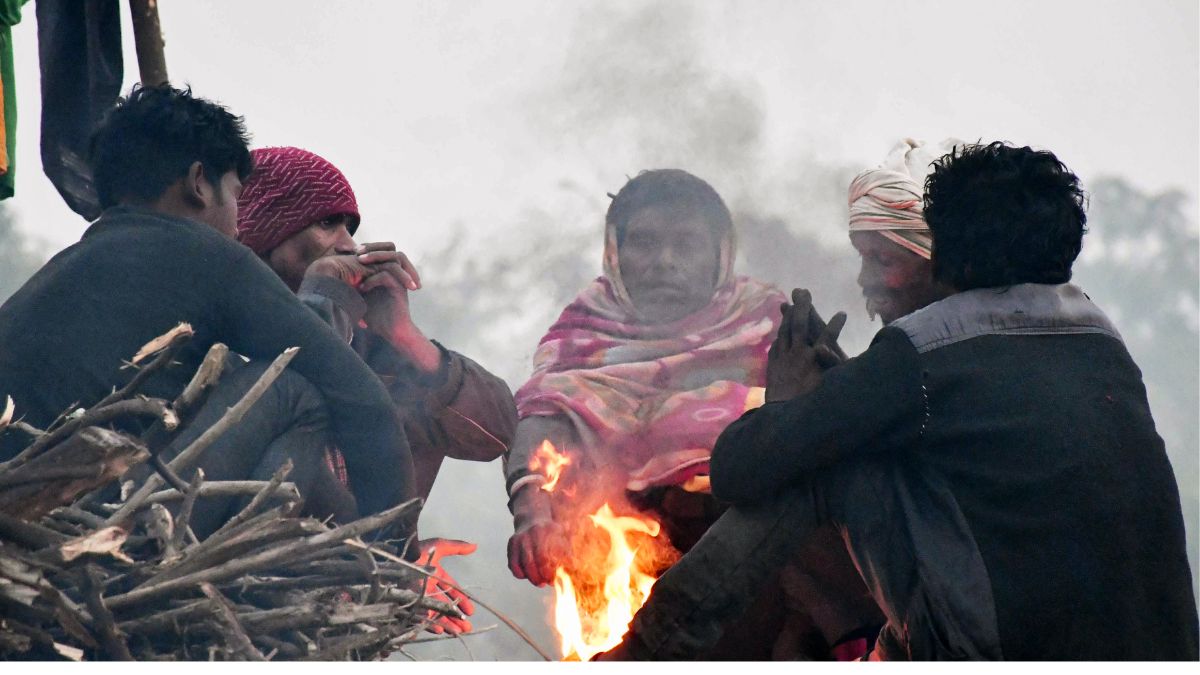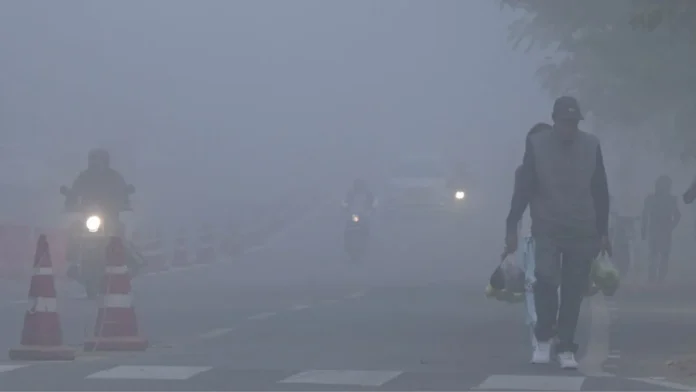Heavy Rainfall And Severe Cold Wave warnings have been issued by the India Meteorological Department (IMD) for several states and union territories. According to the advisory, heavy rainfall is highly likely in Andhra Pradesh, Puducherry, Odisha, and Tamil Nadu over the next two days. Simultaneously, a severe cold wave warning has been declared for Himachal Pradesh, while cold wave conditions are expected in Jammu & Kashmir and Ladakh for the same period. The dual impact of heavy rainfall and plunging temperatures is likely to create challenging conditions in the affected regions.
IMD’s Warning For Heavy Rainfall
The IMD’s forecast points to widespread rainfall in the southern states of Andhra Pradesh, Tamil Nadu, and Puducherry. Odisha is also expected to experience significant downpours. Meteorologists attribute this to a low-pressure system in the Bay of Bengal, which has intensified, leading to a surge in rainfall activity.
Residents in these areas have been advised to exercise caution, particularly in low-lying regions prone to waterlogging and flooding. Authorities have been alerted to take preemptive measures to mitigate the impact of the rains.

Focus On The Severe Cold Wave
In northern states like Himachal Pradesh, Jammu & Kashmir, and Ladakh, the IMD predicts a severe cold wave that may lead to sub-zero temperatures in some areas. The cold wave advisory warns residents to brace for extremely chilly weather, particularly in high-altitude regions. Livelihoods, especially in agriculture and animal husbandry, are likely to be affected due to the freezing temperatures.
What Causes Heavy Rainfall And Severe Cold Wave?
Heavy rainfall in the southern parts of India is often caused by disturbances in the Bay of Bengal during this time of year. The current low-pressure system has escalated, bringing torrential rains to the affected regions.
In contrast, the severe cold wave in northern states is driven by cold winds originating from the Himalayas. These winds lower the temperature significantly, especially in regions already covered in snow.

Impact On Daily Life
The combination of heavy rainfall and severe cold wave can disrupt daily life in the affected areas. In the southern states, flooding could lead to roadblocks, power outages, and interruptions in essential services. For northern regions, the cold wave could increase the demand for heating solutions and put additional pressure on public utilities.
Farmers in these areas are particularly vulnerable, as unseasonal rain and freezing temperatures could damage crops and affect yield. Livestock may also face risks due to inadequate shelter from the cold.
Preparedness And Advisory
The IMD has issued safety advisories for the public:
- For Heavy Rainfall: Avoid unnecessary travel during heavy downpours. Stay updated with local weather forecasts and ensure essential supplies like food and water are stocked in case of emergencies.
- For Cold Wave Conditions: Wear adequate winter clothing and avoid prolonged exposure to the cold. Ensure heating equipment is functional and safe to use. Livestock owners should arrange for warm shelters for their animals.
Previous Instances Of Extreme Weather
India has faced similar dual-weather scenarios in the past. In 2021, Cyclone Nivar caused heavy rainfall in Tamil Nadu and Andhra Pradesh, while a severe cold wave gripped the northern states, leading to significant disruption. Such occurrences underscore the importance of being prepared for sudden weather changes.

Role Of Government And Authorities
The respective state governments have been directed to remain on high alert. Disaster management teams are being deployed in vulnerable areas to provide immediate assistance. Relief centers have been established in regions prone to flooding, and warm shelters are being arranged in areas likely to be affected by the cold wave.
Public Response
The announcement has sparked discussions among citizens and weather enthusiasts alike. Social media platforms are abuzz with updates on rainfall and temperature drops. Many users have expressed concerns about the preparedness of infrastructure to deal with these conditions, while others have shared safety tips and personal experiences.
Moving Ahead With Caution
As heavy rainfall and severe cold wave warnings dominate the weather news, it is imperative for residents to prioritize safety and follow government advisories. This episode serves as a reminder of the need for robust weather forecasting systems and preparedness plans to minimize the impact of such extreme weather conditions.

